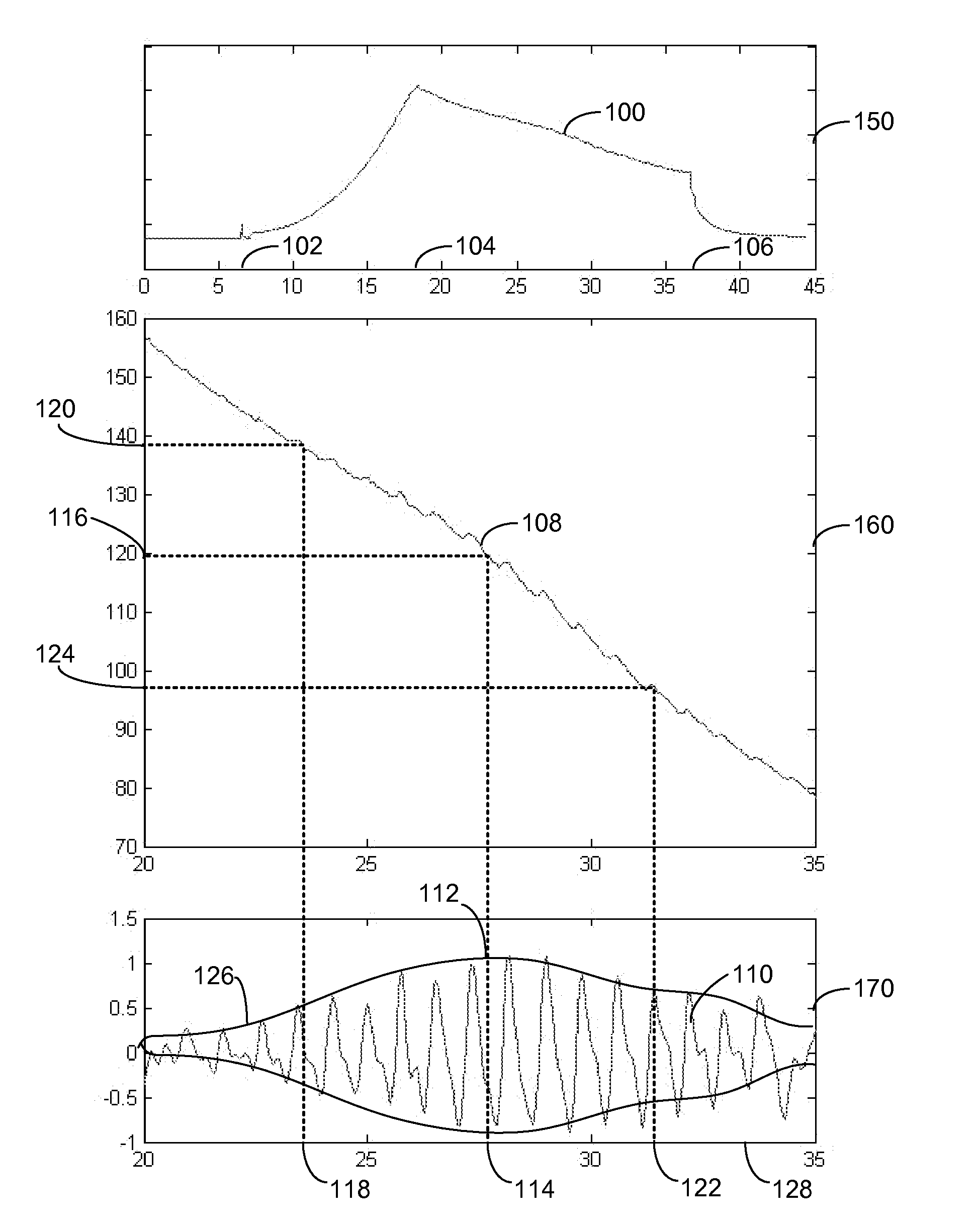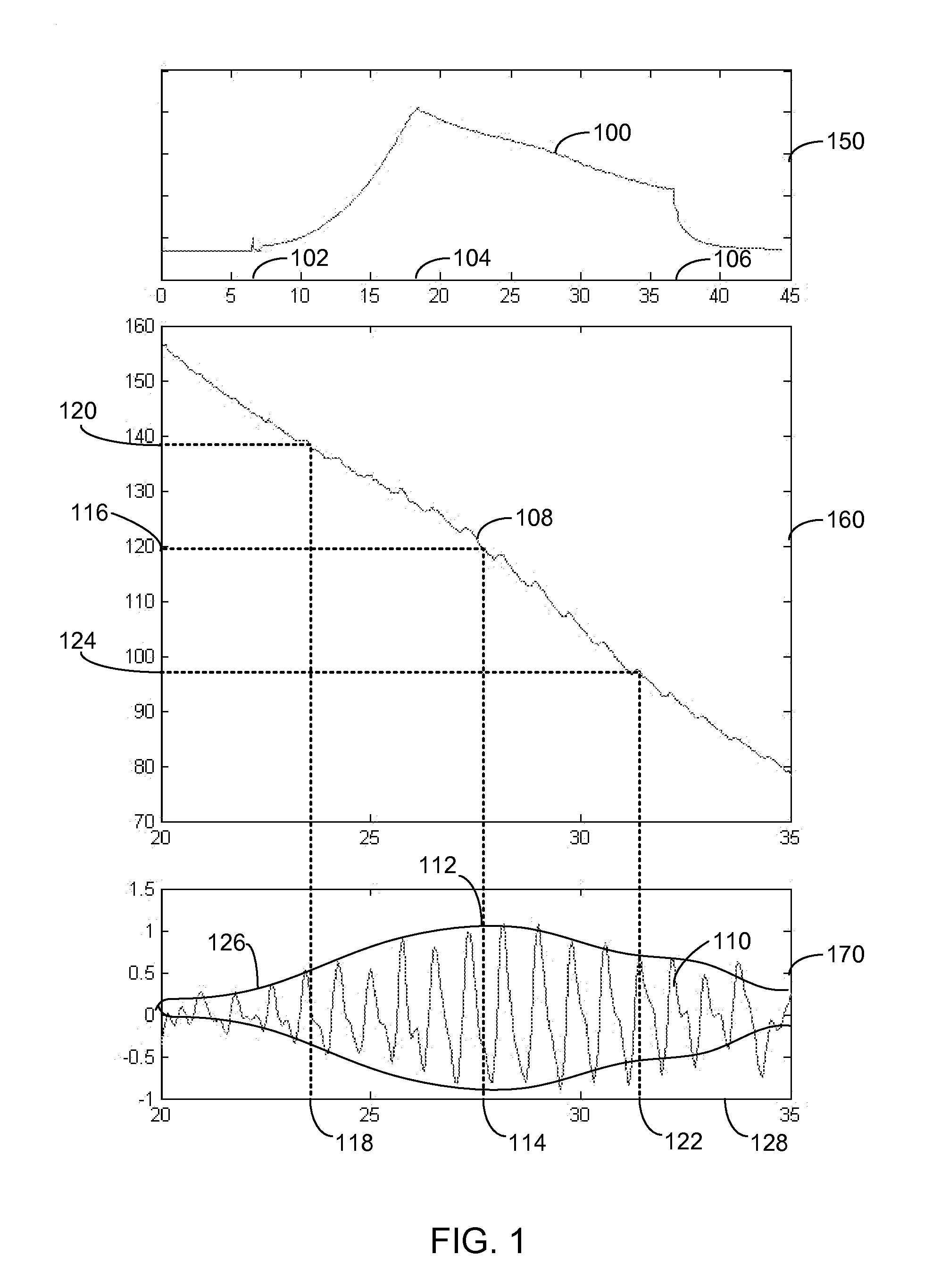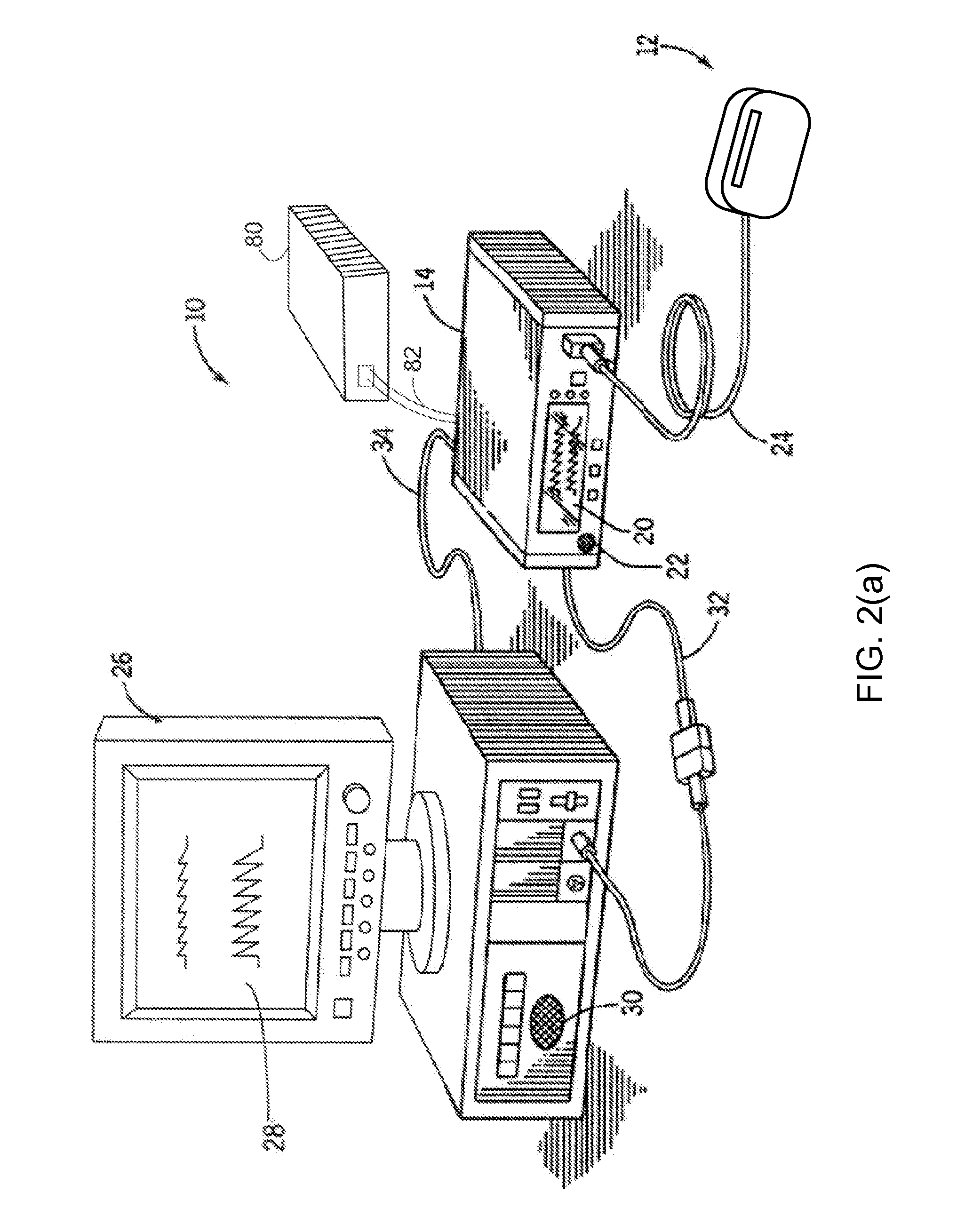Systems and methods for non-invasive determination of blood pressure
a non-invasive, blood pressure technology, applied in the field of blood pressure determination techniques, can solve the problems of systematic errors, difficult or unsuitable techniques for such patients, and the limitations of existing blood pressure monitors that employ oscillometric methods, and achieve the effect of severe physiological consequences and sufficient accuracy
- Summary
- Abstract
- Description
- Claims
- Application Information
AI Technical Summary
Benefits of technology
Problems solved by technology
Method used
Image
Examples
Embodiment Construction
Oscillometric blood pressure determination techniques may involve performing an occlusion procedure to obtain an oscillation signal. An occlusion procedure may include the following sequence of steps:
1. Using an occluding device, apply a pressure to a patient's body to occlude blood flow in a blood channel.
2. Vary the pressure applied by the occluding device and record a pressure signal.
3. Determine an oscillation signal from the pressure signal.
FIG. 1 depicts illustrative pressure signal 100 and illustrative oscillation signal 110 obtained during an occlusion procedure in accordance with an embodiment. In particular, plot 150 depicts an illustrative pressure signal 100 obtained by an automatic blood pressure cuff device applied to a volunteer patient during an occlusion procedure. Embodiments of such devices are described below with reference to FIGS. 2(a)-2(b). At time point 102 (which occurs approximately six seconds into the measurement), the pressure applied to the patient by t...
PUM
 Login to View More
Login to View More Abstract
Description
Claims
Application Information
 Login to View More
Login to View More - R&D
- Intellectual Property
- Life Sciences
- Materials
- Tech Scout
- Unparalleled Data Quality
- Higher Quality Content
- 60% Fewer Hallucinations
Browse by: Latest US Patents, China's latest patents, Technical Efficacy Thesaurus, Application Domain, Technology Topic, Popular Technical Reports.
© 2025 PatSnap. All rights reserved.Legal|Privacy policy|Modern Slavery Act Transparency Statement|Sitemap|About US| Contact US: help@patsnap.com



